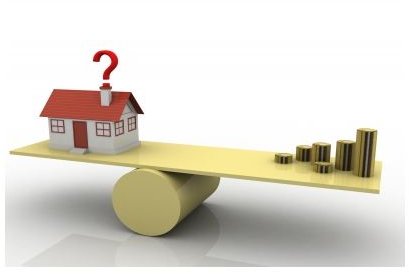Mortgage Options: Refinance Cash Out Mortgages
Defining Cash Out Refinance
A cash out mortgage refinance is when homeowners refinance their current home loans for a higher loan amount and pocket the difference between the amount of the new and old mortgages. A refinance cash out mortgage is one way for a homeowner to tap into any equity that has built up in the home from either price appreciation or reduction of the current mortgage balance.
Someone considering the possibility of a cash out refinance should also look at a home equity loan or home equity line of credit–HELOC–and compare the costs and the resulting total monthly payments.
Considerations for a Cash Out Refinance
A primary consideration for a cash out refinance is whether there is enough equity in the home. Equity is the amount between the home’s current value and the loan balance on the mortgage. A homeowner should have at least 20 percent equity–80 percent loan to value–before attempting a cash out refinance. A loan to value significantly lower than 80 percent is even better.
The costs of a cash out mortgage refinance will be significant. The Federal Reserve Consumers Guide to Mortgage Refinancings notes that refinancing fees can add up to 3% to 6% of the loan amount. In a cash out refinance these fees will be added into the loan reducing the cash out amount. Check out these ways to reduce refinance fees. Another cost will be private mortgage insurance–PMI–if the loan to value is greater than 80% after the refinance.
If interest rates are significant lower than the rate on the existing mortgage, a homeowner may be able to obtain a cash out refinance without significantly increasing their monthly payment. For example, if the current loan had a starting balance of $200,000 at a 6% interest rate and is three years old, a cash out refinance at the 4.5% prevailing rate as of the Fall of 2010 could take out almost $50,000 in cash and not significantly increase the monthly payment.
Who Should Cash Out Refinance?
The prime candidate for cash out refinancing has good credit, a current mortgage with a rate that is above current interest rates, and a home that has appreciated significantly in value since the current mortgage was first taken out. The new mortgage will still have a loan to value of less than 80% after the cash out is completed.
A homeowner who wants to cash out to pay down other debts and is looking at a 95% or higher loan to value mortgage after the new loan is complete is considering a risky path. The current debts will be replaced by a loan with a 30-year term. The rate, fees, and mortgage insurance of a high loan to value ratio refinance may result in significantly higher mortgage payments.
Resources
- Federal Reserve: Consumers Guide to Mortgage Refinancings https://www.federalreserve.gov/pubs/refinancings/default.htm
- Bank Rate: When Is Cash Out Refinancing a Good Options? https://www.bankrate.com/finance/financial-literacy/when-is-cash-out-refinancing-a-good-option–1.aspx
Image Credit (FreeDigitalPhotos)
